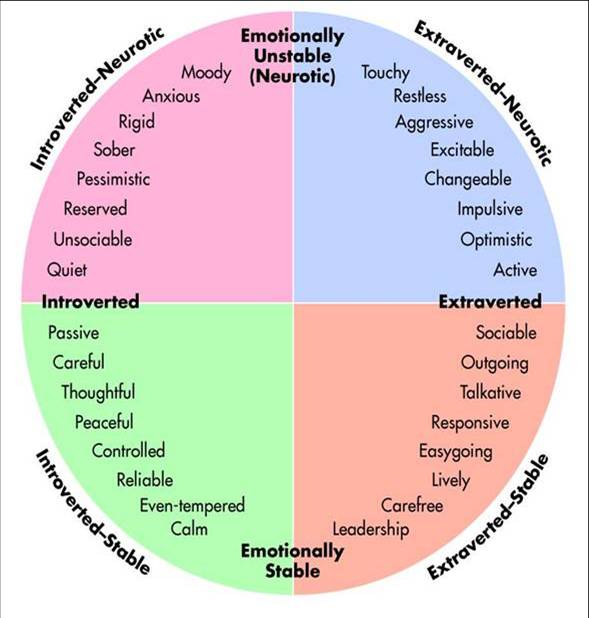What is an outgoing introvert
What is an Ambivert? Are You an Introvert, Extrovert or Ambivert?
Do you think you are an ambivert? I always have struggled with the question:
“Are you an extrovert or introvert?”
Like many people, I don’t quite fit into either category. In this article and video I want to introduce you to the concept of an ambivert.
What is an ambivert? An ambivert is someone who exhibits qualities of both introversion and extroversion, and can flip into either depending on their mood, context, and goals.
Ambiverts have also been called:
- Outgoing introverts: An introvert who can be outgoing in certain situations, around certain people, or when they absolutely need to.
- Antisocial extroverts: An extrovert who needs time to recharge before socializing, or who likes to be alone more than a typical extrovert.
- Social introverts: An introvert who can dial up into extroversion when needed.
Extroversion and introversion describe how someone reacts to people. Ambiverts are flexible in how they react to people.
- In the right context, in the right mood, around the right people, ambiverts can flip up into extroversion.
- In difficult contexts, when tired or cranky, or around toxic people, ambiverts can flip down into introversion.
Here are some of the differences between extroverts, ambiverts and introverts:
Research has found that how we react to people is physiological. This study found that we judge someone’s level of extroversion or introversion immediately–often based on facial structure. For example:
We can also self-select our tendency toward extroversion. Which explanation sounds more like you?
- I am drawn to people; I get energy from social gatherings, and am fairly outgoing. (Extrovert)
- It’s draining to be around lots of people. I prefer peace, solitude, and quiet time. I usually crave alone time in my free time.
 (Introvert)
(Introvert) - It depends. (Ambivert)
I will use the terms as labels for the sake of the article, but let’s get one thing straight:
Ambiversion Is Not a Label, It’s a Spectrum
Instead of thinking about extroversion or introversion as labels, let’s use an extroversion spectrum:
When I talk about the Big 5 Personality Traits, I explain the extroversion scale. You can rank low, high, or medium. People who fall in the middle of the spectrum are called ambiverts.
↑ Table of Contents ↑
Why Ambiverts Are Amazing
Many people assume that extroverts are the best at sales, the best leaders, and the most successful at work—WRONG! Adam Grant, an associate professor at Wharton School of the University of Pennsylvania, analyzed 35 separate studies and found the statistical relationship between extroversion and income was basically zero.
He conducted a personality survey and collected three-month sales records for more than 300 salespeople, both male and female.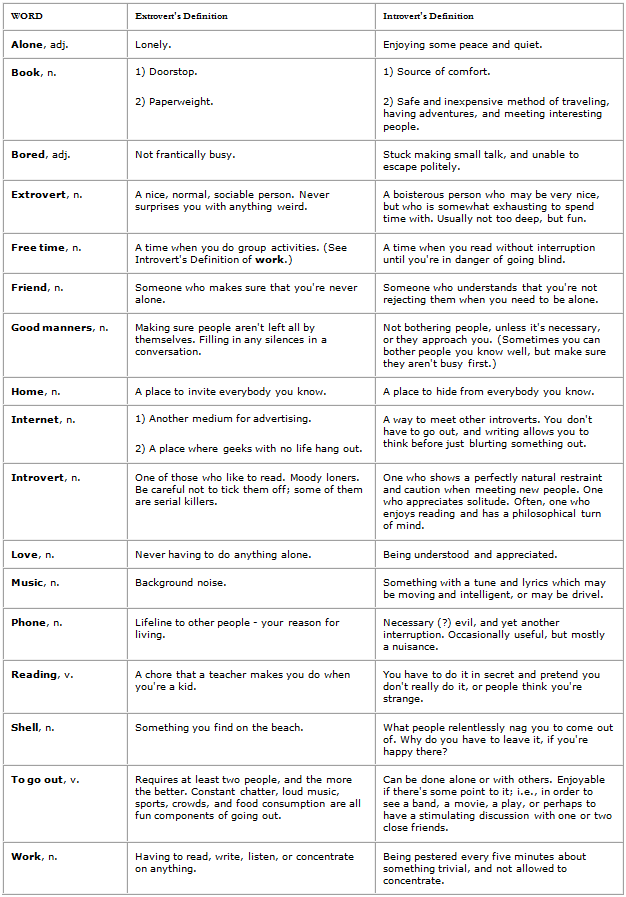 The people who ranked right in the middle for extroversion and introversion–ambiverts–turned out to be the best salespeople.
The people who ranked right in the middle for extroversion and introversion–ambiverts–turned out to be the best salespeople.
“Ambiverts pulled in 24% more revenue than introverts, and a mind-boggling 32% more revenue than extroverts!”
Grant theorized that ambiverts seem to strike a balance between the two more extreme personality traits:
“The ambivert advantage stems from the tendency to be assertive and enthusiastic enough to persuade and close, but at the same time, listening carefully to customers and avoiding the appearance of being overly confident or excited,” Grant said.
Are You An Ambivert?
First, let’s find out how you rank on the scale. Do you think you might be an ambivert? Or do you know one in your life? Take the Ambivert Quiz:
Take the Quiz
↑ Table of Contents ↑
Situational Introversion
Ambiverts typically slide up and down the spectrum depending on the situation, context, and people around them.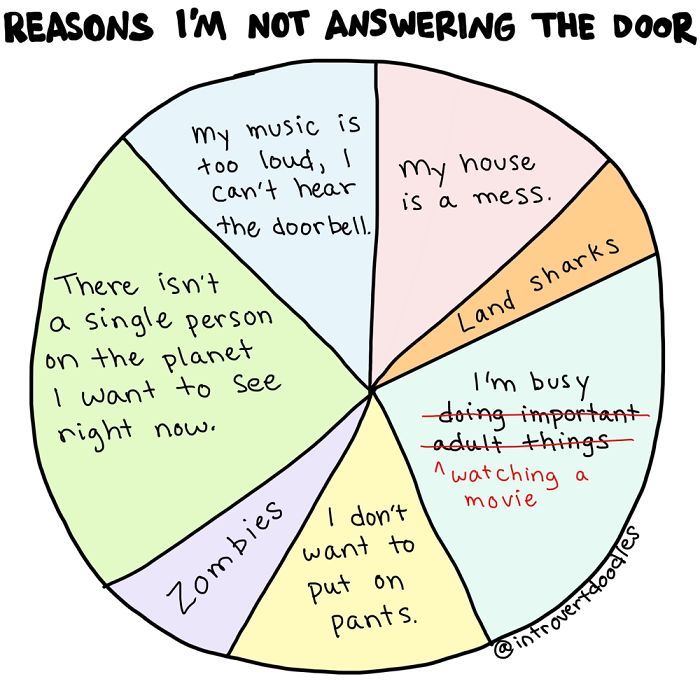 I call this situational introversion.
I call this situational introversion.
For example, certain locations make me extremely nervous and quiet—nightclubs, rooftop bars, and stereotypically ‘chic’ places make me feel super out of place. Whereas, in learning environments — such as classrooms, workshops or seminars — you can’t get me to shut up. I constantly have my hand raised, try to make friends with everyone sitting within ten feet of me, and always ask for extra credit.
If you want to master your people skills you have to build a solid foundation.
↑ Table of Contents ↑
Find Your Nourishing Locations
I split locations into three categories: Survive, Neutral, and Thrive.
Use this list of common places to find your top three thrive locations — places where you are your best self, and your top three survive locations — places where you dread going.
- Bars
- Nightclubs
- Restaurants
- House Party
- Board Rooms
- Office Meetings
- Conferences
- Coffee Shops
- Cocktail Party
- Backyard BBQ
- Networking Event
For example, here are mine:
When you know where you thrive, you can build your schedule and your time around the locations where you can be your best self.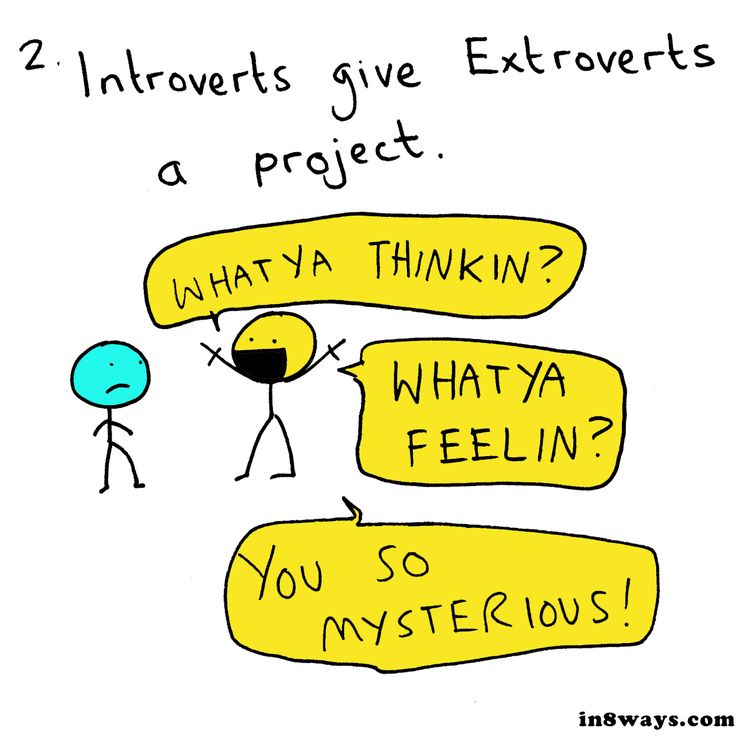
↑ Table of Contents ↑
Find Your Nourishing People
People also can affect where we fall on the extroversion scale. Who brings out the best in you? Are there people you dread seeing? How about people you can’t get enough of?
Right now, make a list of the toxic and nourishing people in your life:
Nourishing:
Toxic:
See every person on that nourishing list? Text, email, or call them right now to get together.
See every person on that toxic list? You deserve to be around people who sustain you.
↑ Table of Contents ↑
The Ambivert Advantage
Being able to balance both extroversion and introversion is an asset. Study these associated traits, courtesy of Larry Kim:
- Flexible: Ambiverts typically can adapt to context and situations more easily.
- Stable: According to psychologist Hans Eysenck, who coined the term “ambivert” in 1947, ambiverts offer a good balance between the hypersensitivity of some introverts and the domineering attitude of some extroverts.
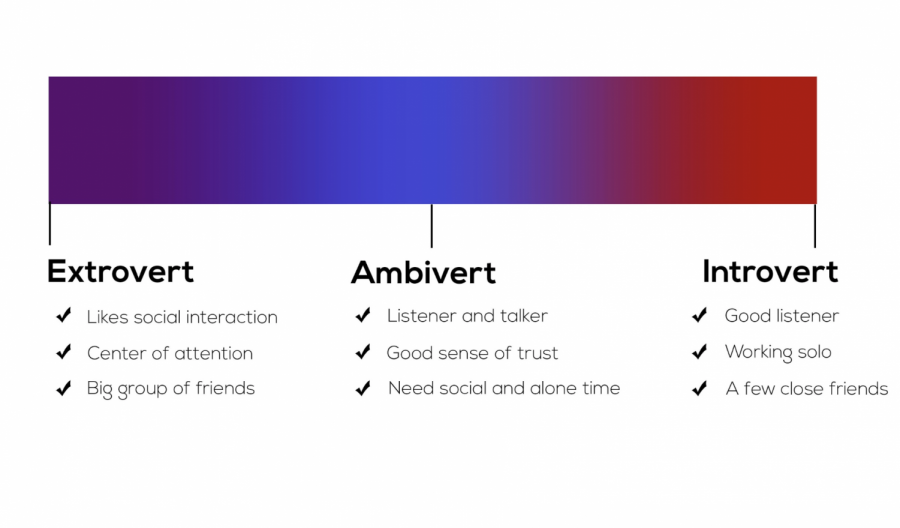
- Intuitive: Daniel Pink said that ambiverts “know when to speak up and when to shut up, when to inspect and when to respond, when to push and when to hold back.”
↑ Table of Contents ↑
Ambivert Problems
With all that flexibility comes some liabilities. Since ambiverts can be so flexible, they often run into a few problems:
- They love to talk to people, but want to plan it out first.
- They say yes to too many things because they aren’t sure what will work best for them.
- Their extroverted side says yes to things in the future, but then their introverted side had a hard day and no longer wants to go.
- When they’re in a bad mood…nothing sounds fun.
- They like going out only when they are in the right mood, with the right people.
- 18 more problems only ambiverts face.
Sometimes ambiverts are caught in the middle — between their desire to be extroverted and the needs of their introverted side.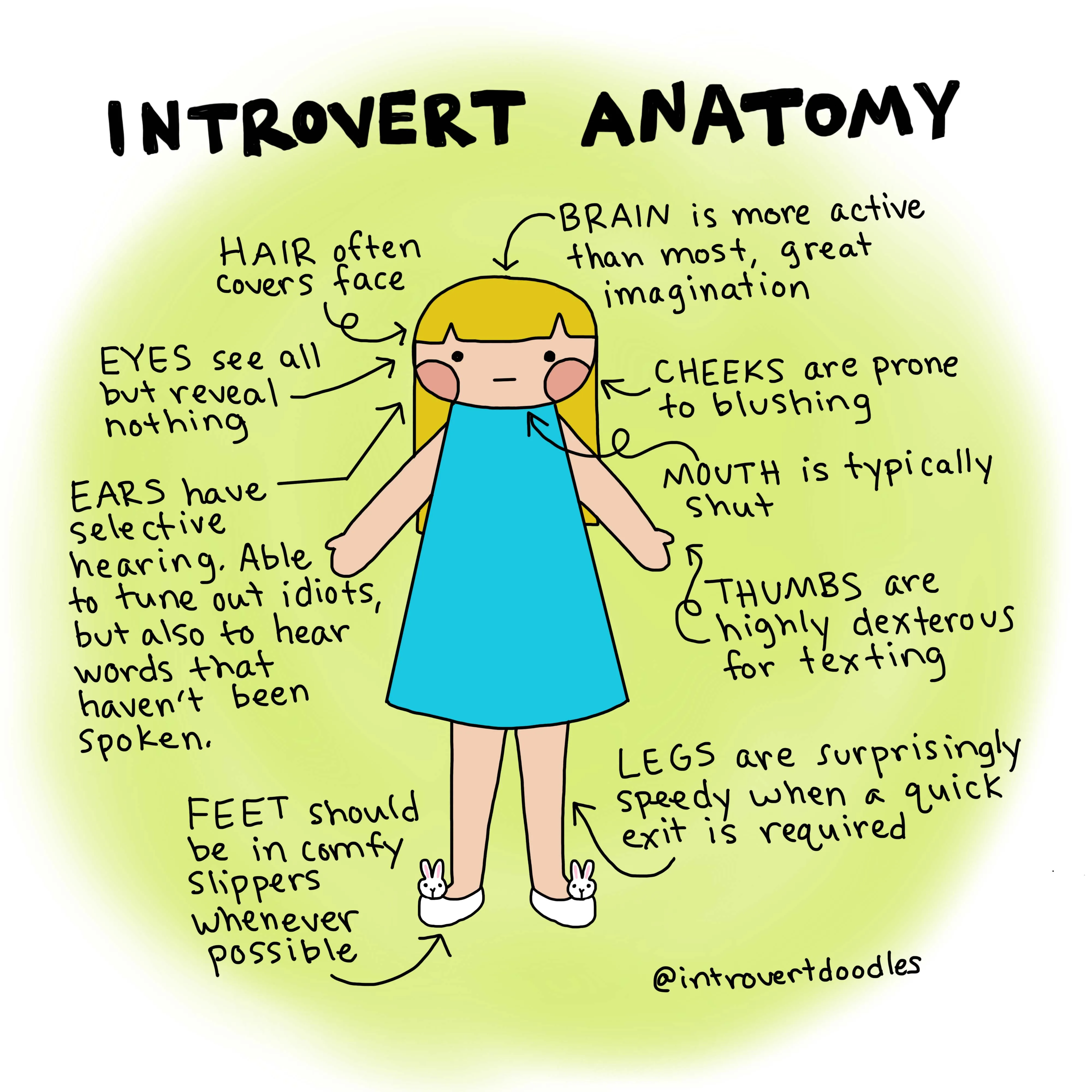
↑ Table of Contents ↑
Amplify Your Ambiversion
Now I want you to leverage your ambiversion! Here’s how:
“The ambivert advantage stems from the tendency to be assertive and enthusiastic enough to persuade and close, but at the same time, listening carefully to customers and avoiding the appearance of being overly confident or excited,” Grant said. Know when to flexibly use the traits that serve you.
I want you to take control of how you spend your time, and who you spend it with. I am giving you permission: you do not have to spend time with people who drain you, or in places that drain you.
Life is too short to spend time with toxic people in draining places!
If you have to see a toxic person—such as a family member or co-worker–use time-blocking to buffer time spent with them. If you know you’re going to see them, be sure to schedule in some recharge time for yourself before or after. You also can have an escape route or excuse ready to go if your time with them runs long.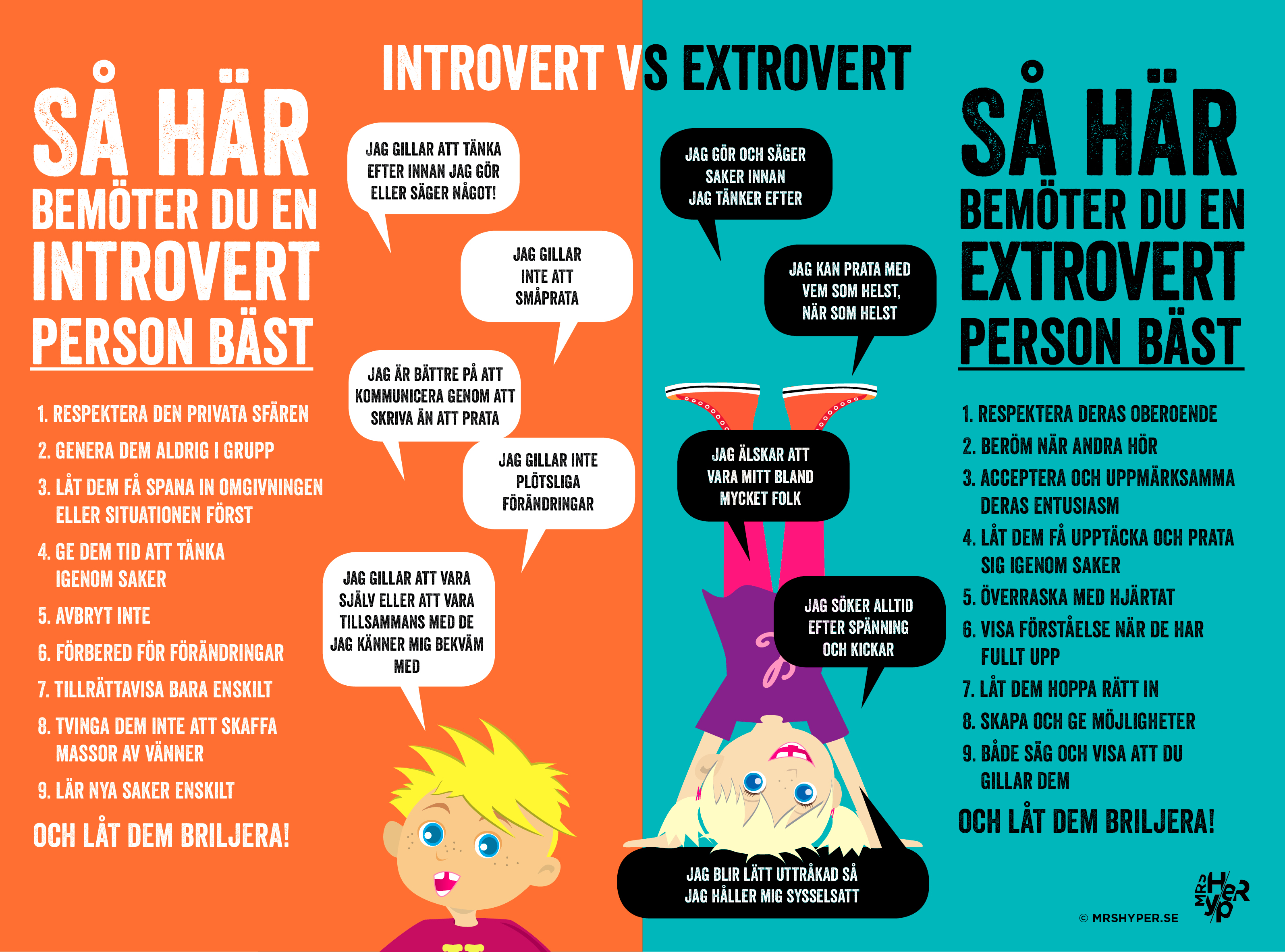 Use scheduling to your advantage by blocking out times and places that work best for your personality.
Use scheduling to your advantage by blocking out times and places that work best for your personality.
What is an ambivert?
An ambivert is someone who exhibits qualities of both introversion and extroversion, and can flip into either depending on their mood, context, and goals.
How do you pronounce ambivert?
Here’s the ambivert pronunciation: am-buh-vurt
Remember: There is no right or wrong personality type. The only right thing to do is to live, act, and address who you really are. Act on your strengths, purge toxicity, and get to know your true self.
Want to get to know your fellow colleagues? Read up on Introverts and Extroverts.
10 Signs That You're an 'Extroverted' Introvert
Sometimes, when you read about what introversion means, you feel like someone is spying on your life. Yes, you do love being alone.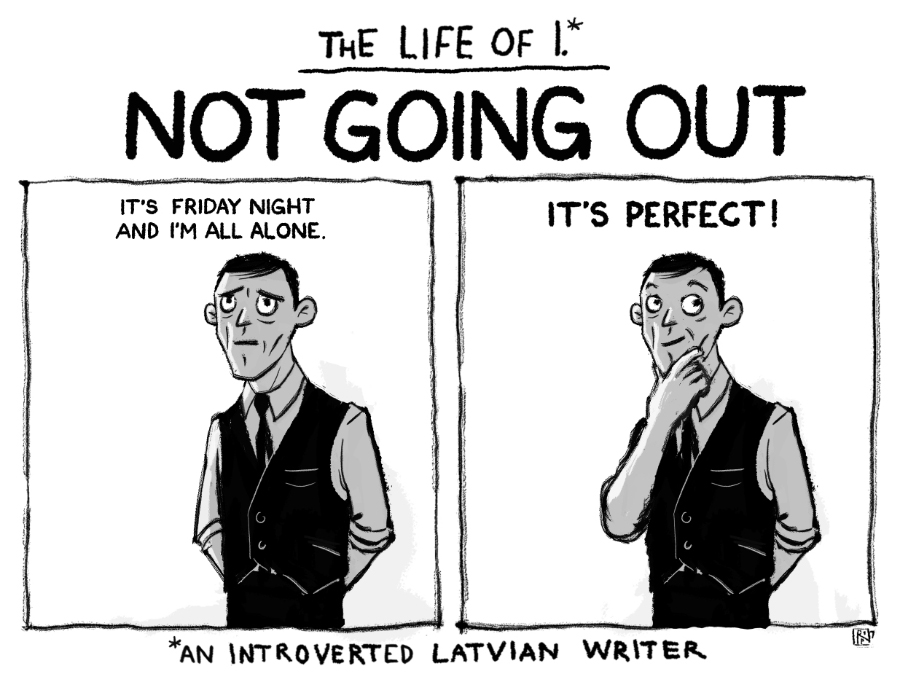 You hate making shallow small talk. And spending too much time around other people leaves you feeling drained, irritable, and sometimes even physically unwell.
You hate making shallow small talk. And spending too much time around other people leaves you feeling drained, irritable, and sometimes even physically unwell.
Yet other aspects of introversion don’t resonate with you at all. You have plenty of friends. You enjoy meeting new people. And even though you prefer meaningful conversation, you’re actually pretty good at making light chitchat.
You’re starting to wonder if you’re really an introvert.
What Is an ‘Extroverted’ Introvert?
Enter the “extroverted” introvert.
The extroverted introvert is known by many names. Some call it an “outgoing introvert” or “social” introvert. Others argue that this is ambiversion.
So what does “extroverted introvert” really mean?
The thing to understand about introversion and extroversion is they are not all-or-nothing traits. Think of these two temperaments as being on a spectrum. Some people fall closer to the extreme ends, making them either very introverted or very extroverted.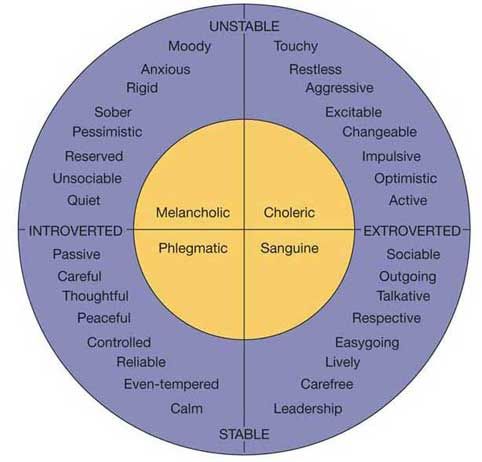 Most people are closer to the middle, which gives them qualities of both introversion and extroversion.
Most people are closer to the middle, which gives them qualities of both introversion and extroversion.
If you think of yourself as an extroverted introvert, it probably means you’re an introvert at heart — but you may be more outgoing than other introverts because your personality is more middle-of-the-spectrum.
Signs You’re an ‘Extroverted Introvert’
Are you an extroverted introvert? If so, you’ll recognize yourself in these 10 signs.
1. Your energy level is closely tied to your environment.
You’re sensitive to your surroundings. It matters how your environment looks, what kind of music is playing, how many people are present, and the noise level. The ambiance of a place can either energize or drain you, depending on if it fits your preferences. A loud rock concert in a crowded stadium might be overwhelming — but an up-close-and-personal acoustic set at your favorite club is soothing.
2. You find people to be both intriguing and exhausting.
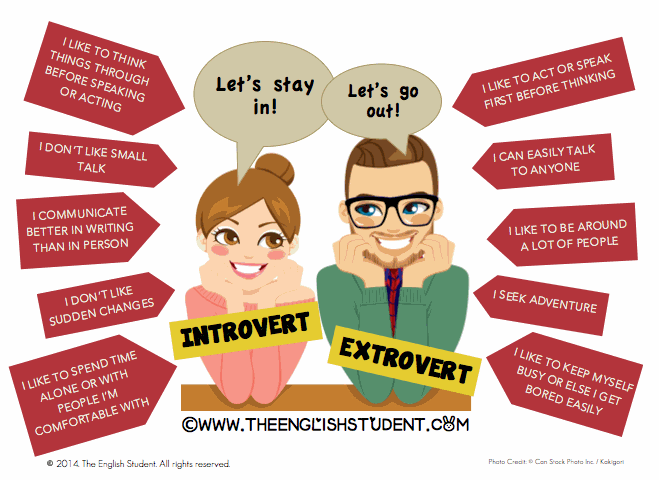
People watching? Yes. Meeting new people and hearing their life stories? Fascinating. Spending almost every night hanging out with friends? Not a chance. Outgoing introverts enjoy meeting new people but can only endure so much socializing. After a busy weekend or a long day at work, you may feel the need to disappear and recharge by being alone or with just one other person.
3. Certain people and interactions drain you while others recharge you.
You have a few friends who you could hang out with for practically forever. It seems like you never run out of things to talk about. Being with them is easy. You actually feel better after spending time with them, not drained — and you act pretty outgoing around them. Other people tire or bore you and you need to get away. Being alone is better than settling for second-rate company.
4. You can be charming but also deeply introspective and reflective.
You make small talk when it’s expected of you because you know it can lead to deeper, more authentic conversation.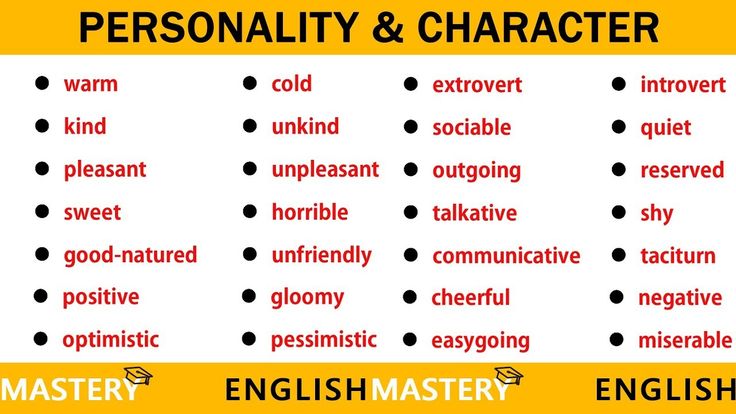 People feel comfortable around you, and you easily get others talking and opening up about themselves. When you’re out with friends, you make sure everyone’s having a good time. However, most people don’t realize how “in your head” you really are. Although you appear easy-going, your mind is always running.
People feel comfortable around you, and you easily get others talking and opening up about themselves. When you’re out with friends, you make sure everyone’s having a good time. However, most people don’t realize how “in your head” you really are. Although you appear easy-going, your mind is always running.
5. When you feel rested and recharged, you reach out to others.
Often, you’re the one who organizes social events for others. Playing the host is ideal for the extroverted introvert — it allows you to spend time with people on your own terms. But when you run out of energy, you’re out, and like a true introvert, all you want is a little hibernation at home.
6. You need time to warm up in social situations.
Your first impression belies your real personality. At first, you come across as quiet and reserved. But once you feel comfortable, you have no trouble chatting. You won’t spill your life story or divulge your insecurities to someone you’ve just met, but you will reveal intimate details once trust is built up. The better someone gets to know you, the more “extroverted” you seem.
The better someone gets to know you, the more “extroverted” you seem.
7. It actually takes less energy to say what’s on your mind than to make small talk.
True extroverts rarely struggle with what to say. It’s easy from them to make chitchat — and talk with ease about virtually any topic. But not so for most introverts. Many introverts find it difficult to force small talk. They’d rather talk about big ideas or connect in an honest, authentic way. This is especially true of extroverted introverts. It’s far easier for them to say what’s on their mind than to fake a rousing discussion about the weather.
8. You’re selectively social.
Although you gain a lot of satisfaction from your relationships, unlike a true extrovert, you don’t have the energy to maintain a large social network. Plus, you don’t click with just anybody. So you make your limited “people” energy count by investing it into just a few close relationships.
9. You have no interest in trying to prove yourself in a crowd of strangers.
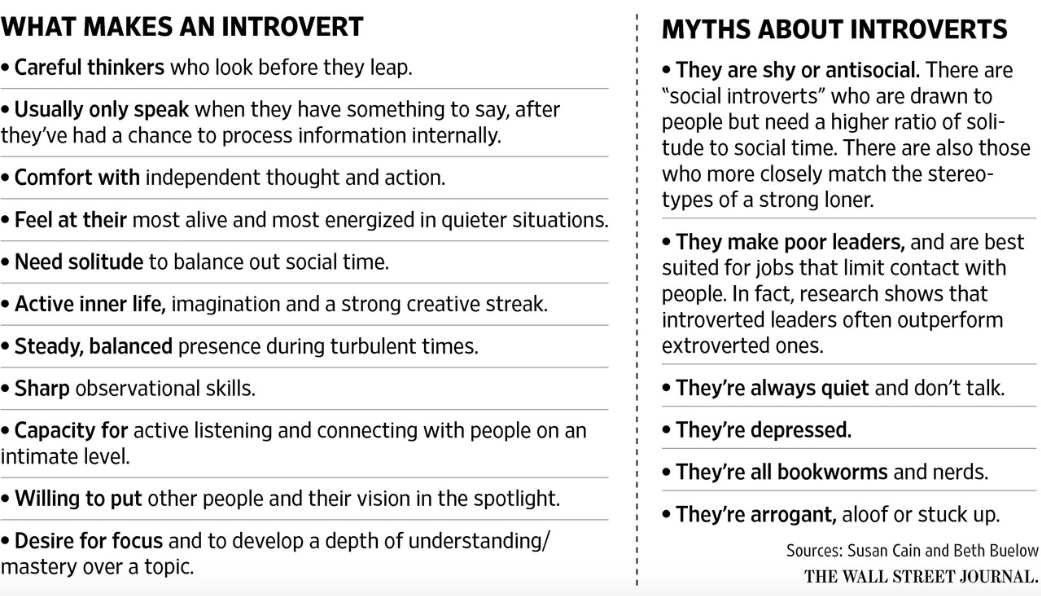
At networking events or parties, you’re not someone who “works the room.” Nor do you feel the need to draw a lot of attention to yourself in social situations. Yes, you see the value in making connections with others, and you especially love those rare moments when you meet a like-minded soul. But you’ll probably never be the most popular person in the room — and you’re okay with that.
10. You’re often confused for an extrovert.
Your friends and family don’t buy that you’re an introvert because you’re just so social. In fact, it may have taken you a while to realize that you’re an introvert — because you play the extrovert so well. Now you find yourself constantly having to explain your introversion and how you get your energy. Unfortunately, most people don’t get it.
Keep in mind that there’s no wrong way to do introversion — and we all act introverted at times and extroverted at others. You can be outgoing and still be an introvert. It’s all about understanding your needs and honoring your own style, even if that means being the life of the party one night and then binge watching Netflix alone the next.
You might like:
- 25 Illustrations That Perfectly Capture the Joy of Living Alone as an Introvert
- 12 Things Introverts Absolutely Need to Be Happy
- Why Introverts Absolutely Loathe Talking on the Phone
- 13 ‘Rules’ for Being Friends With an Introvert
- 15 Signs That You’re an Introvert With High-Functioning Anxiety
Did you enjoy this article? Sign up for our newsletters to get more stories like this.
Manifestations of dichotomy extraversion - introversion.
Hello again. On the air, socionics, and today we will talk about the manifestations of the dichotomy of extraversion - introversion, and how it affects our appearance. I’ll make a reservation right away that everything stated below is an alloy of information obtained from various sources, and my thoughts and observations on this matter, and therefore, is not the true last resort, and does not claim to be one. Ezhili, in the hall there are those who disagree with the author of this essay, please, if possible, do not throw slippers.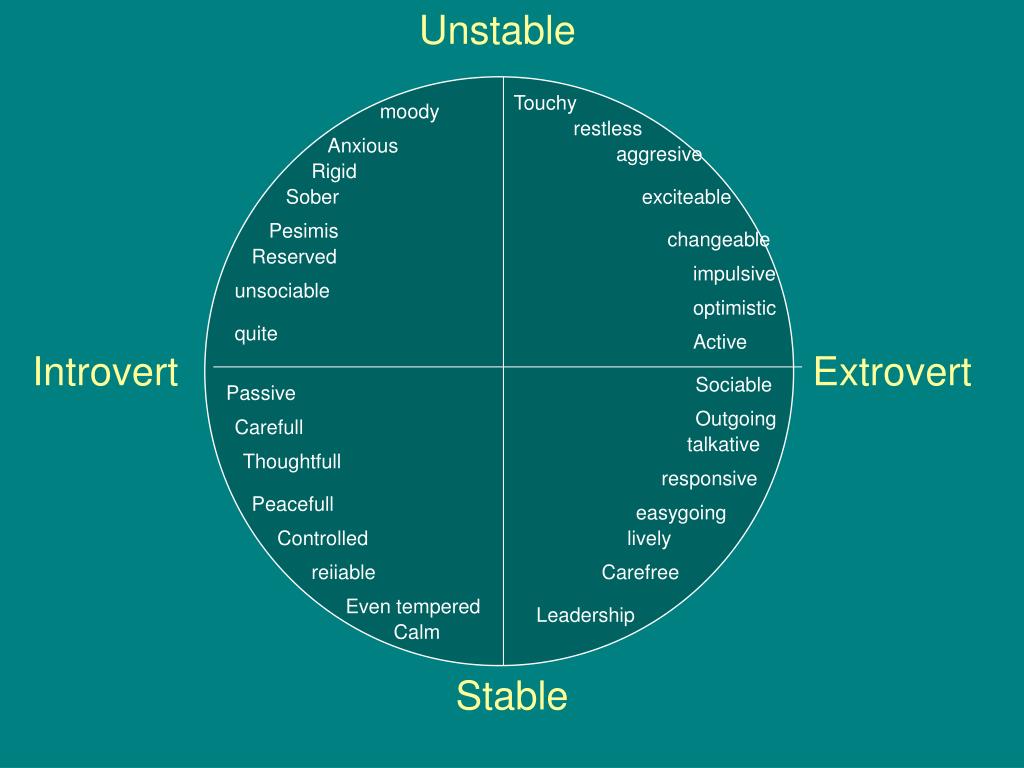 We state our point of view, comment, discuss and supplement. We are looking for the truth, in line with a constructive discussion.
We state our point of view, comment, discuss and supplement. We are looking for the truth, in line with a constructive discussion.
And so:
What are extraversion and introversion, in the interpretation of socionic theory?
Extraversion is the orientation of the individual to the external world, the focus of attention on external objects and phenomena, the objective perception of oneself as an object of this world. I am one of the objects of this world.
Introversion is an orientation to the inner world, a focus on one's own impression of an object, a subjective perception of one's attitude towards objects. I am the subject around which this world is built.
"Quite often, these features are confused with such qualities as sociability - lack of sociability. However, sociability in essence is contact, the ability to easily and quickly converge with people. These qualities are largely determined by the signs of logic - ethics.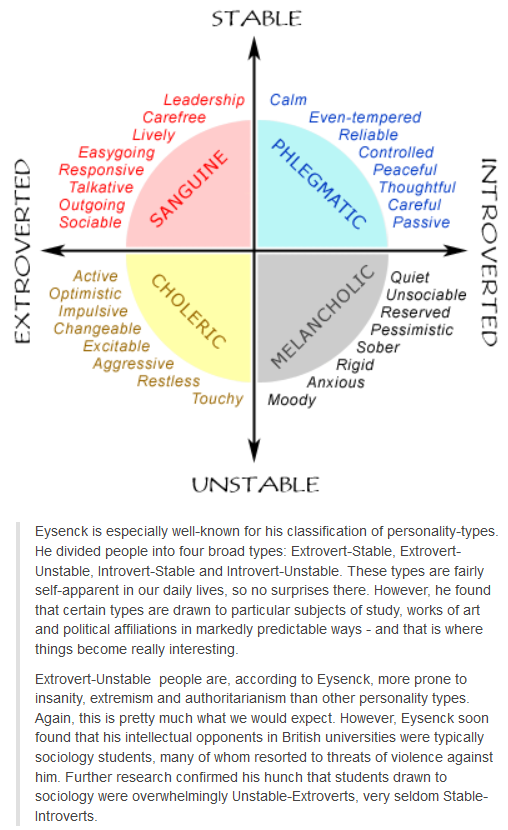 On average, ethics are more sociable,
On average, ethics are more sociable,
An uncommunicative extrovert tends to observe the world from the outside, noticing everything that happens, but not making contact with people
A sociable introvert can intensively contact people either because these people are included in his subjective world, or because he information that is directly related to his subjective world is required.
Quote: http://www.socionika.info/priz.html
How do these dichotomies manifest themselves in human behavior?
Extrovert perceives the outside world, including himself, as a set of interchangeable objects that can be influenced and manipulated. An extravert's attitude to objects is less mobile, so an extravert will rather prefer to change the object to the requested condition - attitude.
Introvert perceives the world as a set of relationships to objects that can be changed and influenced, and objects for him exist, rather, as a given. Therefore, an introvert is more likely to change his attitude towards an object than the object itself.
Therefore, an introvert is more likely to change his attitude towards an object than the object itself.
What does this mean in "human language"?
An extrovert will influence the situation and people, adjusting it to his requirements (attitude).
Introvert will rather adapt himself and change his attitude to existing circumstances and people (objects).
Extrovert , if the situation does not triple it, or the person, whether it be a boss, subordinate, friend or spouse, will try to influence the object or replace it. He will take his spouse to a psychologist, transfer his subordinate to another position, fire him or hire a new one. If possible, he will try to re-elect the boss, or act as an informal leader.
Introvert will most likely try to adapt himself. Less likely to contact the authorities, entrust a subordinate with a different type of work, or take part of the work on himself, he himself will go to a psychologist for advice, so that
readjust yourself.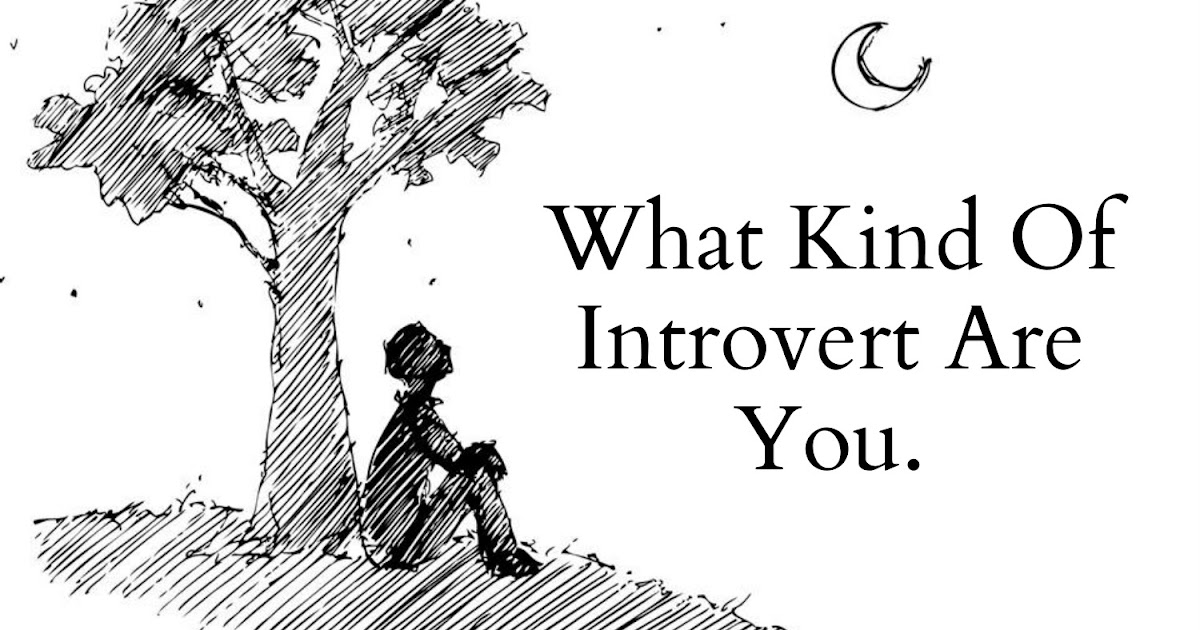
As a result:
Extrovert looks more energetic. Easily takes the initiative, and the role of leader. Promotes others and himself. Draws attention to others. Often asks questions, asks about something. Can draw the attention of others, to the person who is interested in him.
An extrovert respects and likes to take responsibility, and dislikes duty and duty.
Enthusiast. Sets a goal and achieves it. In failures, he is inclined to blame external circumstances, and not himself.
Gets upset if something restricts his activity. I wanted to do something, but I no longer need to.
Criticism for slowness will cause aggression; for excessive activity will be perceived as a compliment.
Needs praise and attention for his care.
Introvert looks less active, more calm, self-absorbed. More of an observer than an initiator. He does not promote himself or others. draws attention to oneself; waiting to be noticed. He does not aspire to a leadership position, but if he becomes one, he feels irreplaceable.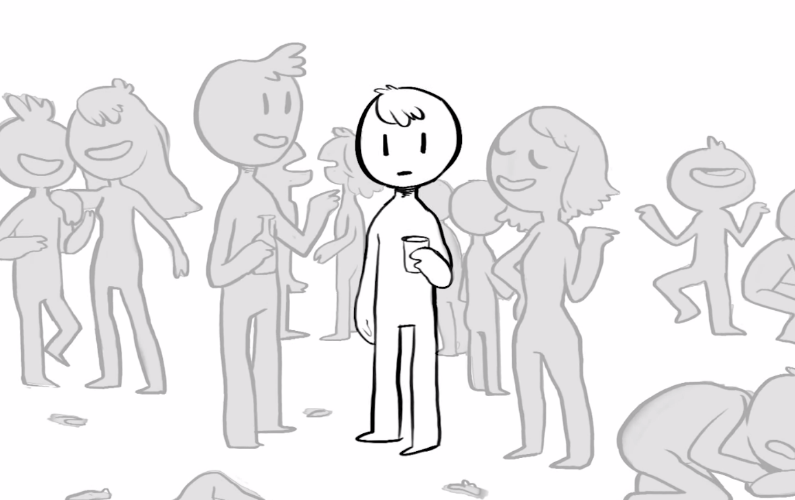
Respects a sense of duty, does not like to take responsibility.
Self-critical. Rather finishes things to the end than goes to the goal. In failures, he tends to blame himself.
Rather upset because of excessive activity. Did something but didn't have to.
Criticism for sluggishness can stir up, for excessive activity "kills".
Needs attention and praise for his work.
External manifestations:
As a rule, extroverts a more lively look, as if scanning space, and wide, sweeping gestures from the shoulder.
Therefore, they also choose clothes that are freer, not restricting movement. Since the extrovert boldly puts himself forward, this is also manifested in clothing by a bolder choice; not necessarily more original or prettier, it's just that an extrovert feels more confident in "not like everyone else's" clothes.
In introvert , the gaze is often directed at itself, or rather, at the floor. The gestures are small from the brush, and therefore the clothes on him, “as they put it, it lies. ” Less often something slips and warps. An introvert does not put forward himself, it is more difficult for him to fall out of the environment, as a result, his clothes are more “accepted” within the framework of the society in which he lives.
” Less often something slips and warps. An introvert does not put forward himself, it is more difficult for him to fall out of the environment, as a result, his clothes are more “accepted” within the framework of the society in which he lives.
From my personal observations, extroverts more often prefer yang colors, that is, dark or bright, and introverts yin - light or softened.
I repeat once again that everything described above does not mean that a person will always act only as prescribed for his type. Both extroverts and introverts have certain circumstances, depending on which a person will act differently.
To determine fidelity, it is necessary to observe which reaction dominates. When it comes to yourself, it may be useful to notice which of the reactions is primary. That is, according to what scheme you want to act initially, “on the machine”, and which one you resort to when you need to achieve something.
Addition from aufall
for an extrovert to communicate with people - rest, to be alone - work (in the sense, you get tired of it), for introverts - to be alone with yourself - rest, to be among people - work that is exhausting.
The tendency to communicate one on one is an introverted characteristic.
do not forget that extraversion and introversion are two poles of one inseparable scale, that is, many intermediate options are possible.
And finally, task :
I suggest everyone to delve into their memory and find examples of the manifestation of extraversion or introversion in your own behavior or the behavior of others.
Materials used in preparing the post:
http://www.socionika.info/
http://psychotype.ru/
http://psy-resource.com/
Funny pictures http://vk.com /wall-34665995_9165
Sociable introverts and reserved extroverts
Jung (and he came up with the idea of dividing people into introverts and extroverts) used orientation as a criterion. Orientation to objects or orientation to the relationship between these objects . An introvert lives like this: he receives information, and then puts it on his shelves, and it takes time to put it on the shelves.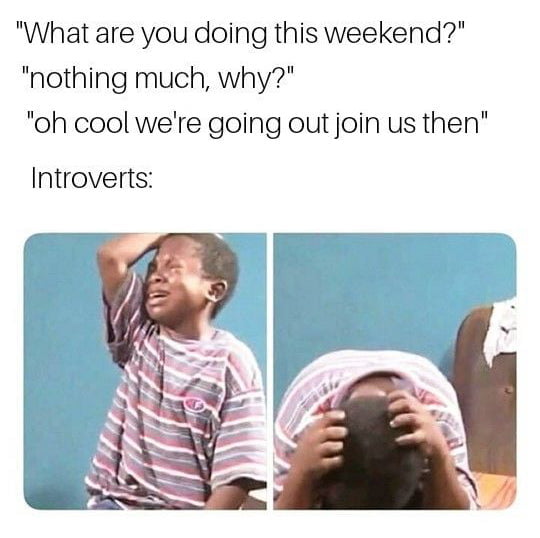 An extrovert does not lay out anything.
An extrovert does not lay out anything.
An extrovert does not need to make connections, he simply draws energy from objects. It can be people, objects, events - anything. An introvert, on the other hand, must link the new, received - with what he already has inside. An introvert is such a repository of objects, but in order for them to be preserved, it is important for him to sort them. For example, an extrovert and an introvert are walking in the park. An extrovert sees everything: ducks on a pond, colorful children on colorful bikes, people, trees. And this fills the extrovert, gives him energy. He draws energy directly from objects, from their very essence. It just takes everything.
By the way, it would be interesting to think about this: do objects lose their energy just because some extravert looked at them? That is, if an extrovert is recharged by an object, the object must be recharged, is it or not? What do you think? An introvert, on the other hand, carefully selects, accepts only those objects, people, actions, sounds, smells that are related to him. An introvert is the very source of energy. It is, as it were, self-renewable, so it is important for an introvert to be careful with their energy: not to waste it.
An introvert is the very source of energy. It is, as it were, self-renewable, so it is important for an introvert to be careful with their energy: not to waste it.
Introvert giver, extrovert receiver. Here the analogy with a man and a woman begs: an introvert can be compared with a feminine principle, an extrovert with a masculine one. It is clear that women are often masculine and men are feminine, but we are talking about the essence: male and female.
Tireless female extrovert
Introvert - waiting, extrovert - taking root. The introvert accepts and soothes, relaxes, clarifies. An extrovert wins: people, information, land, in the end. It depends on what he, an extrovert, imprisoned. An extrovert can be unsociable, for example, when he no longer needs anything from you, when there is no energy in you. He will look for another object, more energetic.
An introvert can be very outgoing when he wants to share his energy. When he wants to give away a piece of what has already accumulated in order to start generating a new piece.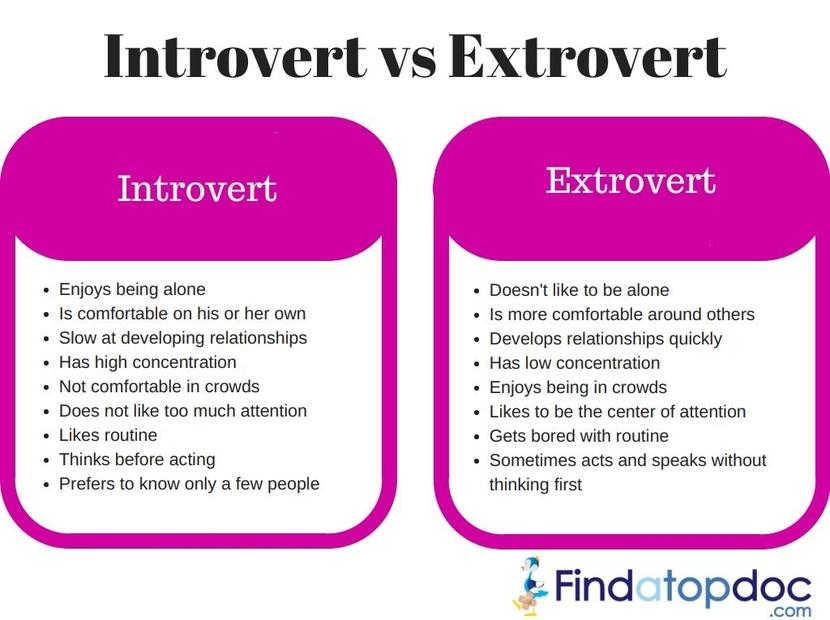 Extroverts and introverts need each other. Needed in order to carry out the cycle of energy in nature, so that life continues. In general, if you think very broadly, then the Earth itself is such a huge global introvert, and all living things: plants, birds, animals, people are such extroverts that take energy. The earth saves and gives away, is restored, gives back again. And all living things take and grow, renew, develop.
Extroverts and introverts need each other. Needed in order to carry out the cycle of energy in nature, so that life continues. In general, if you think very broadly, then the Earth itself is such a huge global introvert, and all living things: plants, birds, animals, people are such extroverts that take energy. The earth saves and gives away, is restored, gives back again. And all living things take and grow, renew, develop.
It can be said that introverts and extroverts exist in pairs in the world. If we consider from the point of view of socionics, then these pairs are:
An extrovert living with emotions + an introvert living with reason = harmony of thought and feeling.
An extrovert, reaching for new achievements and conquests + an introvert, looking for peace and inner integrity = harmony of low, animal and high, spiritual essence.
An extrovert looking for new experiences + an introvert creating stability = harmony of loftiness, frivolity and earthiness .
AND also extrovert, in all seeking practical gain + introvert setting the limits of conscience = union of prudence and 28 and 28
Every person has both introversion and extraversion. That is why often people cannot decide who they are. Extroverts think that they are such romantic detached introverts, while introverts often think of themselves as irrepressible wasters of energy. In fact, a small introverted part in an extrovert is a way of regulating the psyche. When you are already too distracted by the surrounding objects, your inner introvert suddenly gives a voice and calls for order. And vice versa.
In socionics, extraversion and introversion are associated with the division of informational aspects into "black" and "white". Extraverted information is black, introverted information is white. Black represents the part, white represents the whole. Or you can do this: black - bricks, white - brick wall.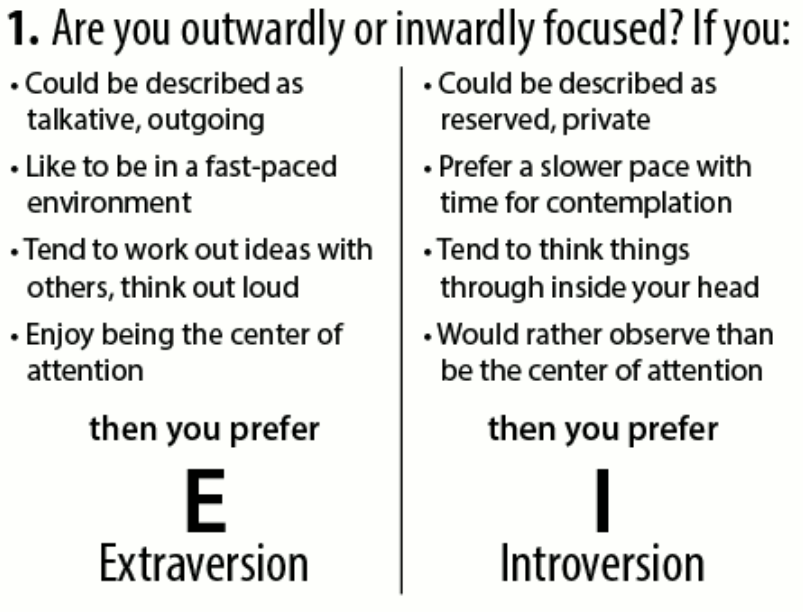 If extraversion can be represented as a dot, then introversion can be represented as a line connecting these points. After all, introversion is, first of all, a connection. And extraversion is a point, a detail, an element.
If extraversion can be represented as a dot, then introversion can be represented as a line connecting these points. After all, introversion is, first of all, a connection. And extraversion is a point, a detail, an element.
For example, there is an informational aspect - logic. Separate black logic and white logic. In socionics, white logic is denoted by a white empty square, and black logic by a black square. Black logic is actions, steps to achieve the plan, and white logic is the plan, the system. Thus, a large white logic is formed from small black logics.
Or there is also ethics. White, introverted, is indicated by a white figure, and black by black. Black ethics are emotions-reactions that arise every moment to people, events. And white ethics is a feeling made up of these emotions. If we talk about sensory, then black sensory is physical actions that add up to the result, white sensory, bodily sensations. For example, you applied a black sensory force - you ran, and the internal sensations of your body changed.